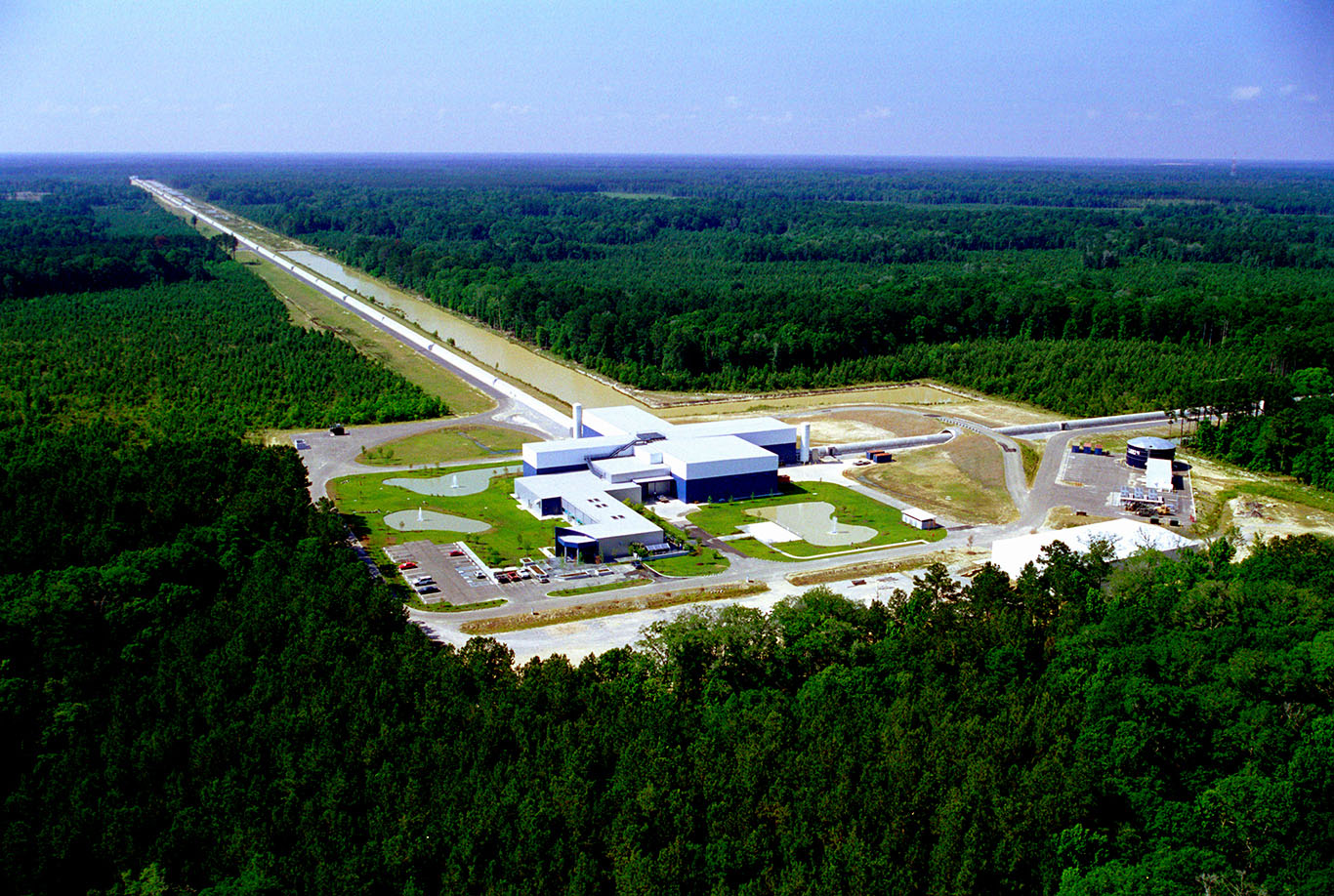David Reitze gives back to UF Physics.
David Reitze, executive director of the Laser Interferometer Gravitational-Wave Observatory (LIGO) at Caltech, is one of three winners of the prestigious National Academy of Sciences Award for Scientific Discovery, a prize comprising $50,000 cash and $50,000 to support the recipients’ research. Now, Reitze has given back part of his share of the award to UF, one of the original institutions involved with LIGO and where he is professor of physics.

“The physics department is one of UF’s premier academic departments, and I benefitted greatly both professionally and personally from my affiliation with it.”
At a ceremony on April 20, 2017, NAS recognized Reitze for his leadership at LIGO, which has detected three chirps of gravitational waves from colliding black holes. These discoveries are significant because they demonstrate that the fabric of space-time is rippled by enormous outputs of energy, as Albert Einstein predicted in 1916. LIGO’s successes herald a new era of multi-messenger astronomy, or the study of waves and particles to understand cosmic objects.
Reitze was instrumental in LIGO’s growth into a state-of-the-art project capable of precise detection of faraway, long-ago cosmic events. He built an interdisciplinary team of scientists, several of whom continue to work at UF on its LIGO team. “It’s amazing that Reitze was able to coordinate all these people,” says Guido Mueller of the UF LIGO team, who designed the input optics (IO) for the interferometer, as well as the algorithm, Coherent WaveBurst, that enabled the detection of the gravitational waves. After leading UF’s input optics program beginning in 1996, Reitze relocated to Caltech in 2011 to serve as executive director of LIGO. “The IO was in such a good shape and the entire IO team at UF was so strong that finishing the $5 million project turned out to be fairly straightforward,” says Mueller.
Looking back over a project more than 20 years in the making, Reitze reflects on how UF made that possible. “The physics department is one of UF’s premier academic departments, and I benefitted greatly both professionally and personally from my affiliation with it,” says Reitze, whose donation will benefit the department directly. “I continue to maintain a deep bond to my colleagues and friends in the department. Giving back is an obvious thing for me to do!”
To support the people, program, or research featured in this story, please visit
